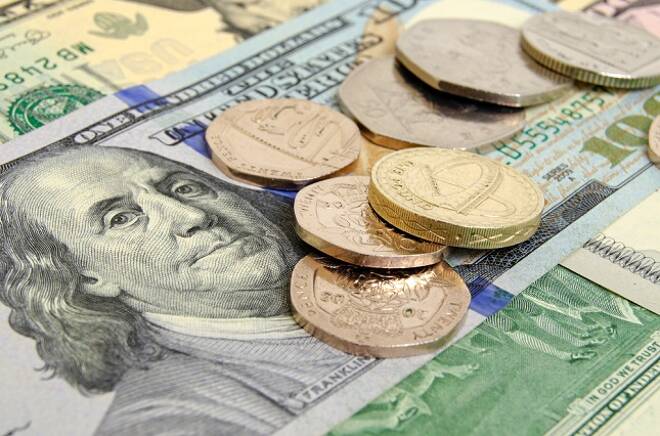Advertisement
Advertisement
Brexit Weighs on the GBP as Focus Shifts to the USD and Retail Sales
By:
While Dollar strength kicked in this morning, today's retail sales figures and sentiment towards Brexit and trade talks will be key.
Earlier in the Day:
Economic data released through the Asian session was on the lighter side this morning. Stats were limited to February electronic card retail sales figures out of New Zealand.
For the Kiwi Dollar,
Electronic card retail sales rose by 0.9% in February, following on from a 1.8% rise in January. According to figures released by NZStats,
- Spending rose in five of the six retail industries. Spending on groceries and liquor increased by 1% (NZ$19m). There were also sizeable increases in spending on fuel (+1.3%, NZ$7.4m) and hospitality (+0.7%, NZ$7.0m).
- Spending on fuel came off the back of rising fuel prices.
The Kiwi Dollar moved from $0.67999 to $0.6792 upon release of the figures. At the time of writing, the Kiwi Dollar stood at $6798, down 0.09% for the session.
Elsewhere,
The Japanese Yen stood at ¥111.14 against the U.S Dollar, up 0.03% for the session, while the Aussie Dollar was down by 0.14% to $0.7035.
In spite of the Dollar slide last Friday, there was support through the early morning. FED Chair Powell talked down the chances of a recession, whilst continuing to support the need for patience on policy.
The equity markets were able to brush off the dire NFP numbers from Friday. The CSI300 was up by 1.46% early on, with the Hang Seng and Nikkei up by 0.64% and by 0.21% respectively.
The Day Ahead:
For the EUR
German industrial production and trade data will provide direction to the EUR through the early part of the day. Following last week’s dovish ECB press conference, another set of disappointing numbers could hit the EUR hard.
While the stats are skewed to the negative for the EUR, progress on trade talks between the U.S and China could spur risk appetite and much needed support for the EUR.
At the time of writing, the EUR down by 0.02% at $1.1233.
For the Pound
It’s a big week ahead for the Pound. Tuesday’s parliamentary vote on Theresa May’s Brexit deal will be the first order of business. A vote to delay Brexit could be made as early as Thursday, assuming Theresa May gets hit with yet another parliamentary loss.
A lack of economic data will leave the Pound particularly sensitive throughout the day. A failure to garner concessions from the EU could also lead to another vote of no confidence. This time around, Theresa May could be less fortunate, though we would likely have to await the outcome of tomorrow’s vote.
The failure to get the EU to make further concessions over the weekend will likely be negative for the Pound. Political uncertainty in the months ahead will likely add further pressure on the economy.
At the time of writing, the Pound was down by 0.32% to $1.2973.
Across the Pond
Retail sales and business inventory figures are due out this afternoon. While we can expect December business inventory numbers to provide some direction, the focus will be on January’s retail sales figures.
A dire nonfarm payroll number for February will see the Dollar more sensitive to stats going into the week. The retail sales figures cover the period of the extended government shutdown. Forecasts are skewed in favor of the Dollar.
Outside of the stats, progress on the U.S – China trade talks could ease demand for the Greenback, though Brexit is also there to factor in.
At the time of writing, the Dollar Spot Index was up 0.11% to 97.414.
For the Loonie
There are no material stats to provide direction to the Loonie through the day. Market risk sentiment and crude oil prices will provide direction, though any support for the Loonie will likely be limited following last week’s BoC outlook.
An early pickup in crude oil prices provided support but failed to pull the Loonie into positive territory against the Dollar in the early hours.
The Loonie was down 0.09% at C$1.3428, against the U.S Dollar, at the time of writing.
About the Author
Bob Masonauthor
With over 28 years of experience in the financial industry, Bob has worked with various global rating agencies and multinational banks. Currently he is covering currencies, commodities, alternative asset classes and global equities, focusing mostly on European and Asian markets.
Advertisement
